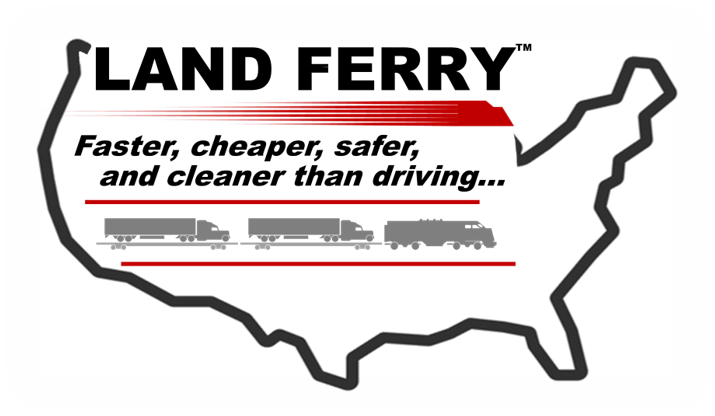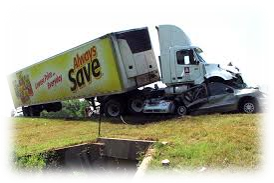
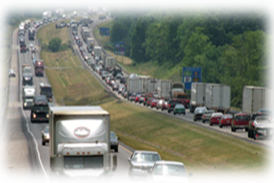

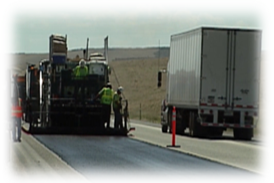
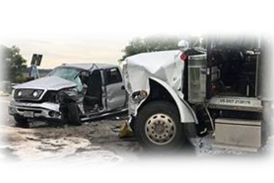
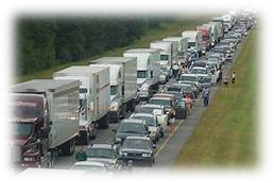
- Decreases the number of trucks traveling through corridor
- Reduces congestion and delays
- Lessens construction costs and reconstruction frequency
- Decreases crashes/fatalities/losses
- Lowers greenhouse gas emissions
- Spans 1,300 miles from Jolliet, IL to Evanston, WY with future expansion to Sacramento or Reno
- Traverses four states: IL, IA, NE, WY; and three more states with expansion UT, NV, CA
- MPOs impacted: Reno, SLC, Lincoln, Omaha, Des Moines, IA City, Quad Cities
- Truck traffic continues to increase
- In many stretches of WY and NE more than half of vehicles are trucks – with the majority of these trucks passing through corridor states
- Frequent lane closures, delays and reduced speeds due to reconstruction

- Saves IL, IA, NE and WY hundreds of millions of dollars in annual construction costs on Interstate 80 by reducing the damage caused by trucks; similar savings will be realized by CA, NV and UT with future expansion
- Frees up state funding for investment in their other state roads
- Enhances safety
- Thirty-percent improvement in operational performance; more turns; more income in a given time
- Less wear on equipment; no operating costs while in transit
- Operators arrive fresh to drive the final 100 – 500 miles to their destination
- More time to spend at home; improves working conditions
- Helps address driver shortages by creating more turns
- Creates a new level of service for shippers with thirty-percent faster delivery
- Minimal impacts from winter weather
- Some cost savings likely to be captured by shippers
- Large shippers (Amazon, Walmart, UPS) may integrate into future logistics solutions
- Creates new business with large volume from single customer
- Captures freight currently not traveling on rail
- Supplements declines in coal shipments
- Generates goodwill as a visible climate change champion
